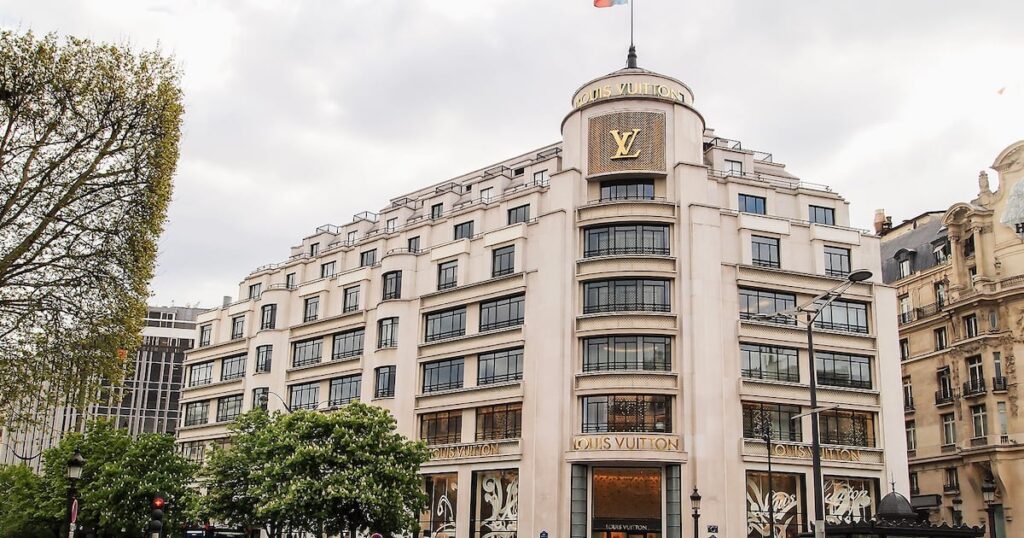[ad_1]

While plenty of French companies may be hoping the governmentâs proposed â¬8 billion increase in corporate taxes remains a temporary measure, as promised, executives at some have been hard at work trying to quantify the possible impact.
Ten companies in the CAC 40 Index disclosed in recent weeks that they would pay a combined â¬2.8 billion in extra tax next year, according to a review of earnings statements and conference calls. Thatâs a third of the amount the government wants to raise to help bring the budget deficit down. Luxury giant LVMH, Franceâs biggest company by market value, expects to owe as much as â¬800 million in additional taxes.
Among others that have disclosed the biggest hits: Toll-road operator Vinci SA, jet-engine maker Safran SA and handbag-maker Hermes International.
For the many companies that declined to provide an estimate, analysts have been crunching the numbers to help them sort winners from losers in what is already one of Europeâs worst-performing stock markets this year.
âThe risk is to see this increase in corporate taxes staying for a long period of time, beyond 2026, until the government is sure to get its 3 percent target for its deficit,â Mabrouk Chetouane, head of global market strategy at Natixis, said in an interview. That would curb investor appetite for French stocks, he said.
The CAC 40 has underperformed other European indexes this year because of months of government turmoil and the prospect of big budget cuts to deal with the countryâs âcolossalâ debt.
Prime Minister Michel Barnierâs draft budget for next year calls for the temporary levy on some 440 profitable companies with annual revenue in France of more than â¬1 billion. The tax, first payable next year based on this yearâs results, aims to generate â¬8 billion in 2025 and â¬4 billion in 2026.
The part of the budget dealing with government funding goes to Franceâs Senate after the National Assembly on Tuesday rejected a heavily amended version of the proposal. In the end, the government, which lacks a majority in the lower house, probably will have to use a constitutional provision to force the budget through the assembly without a vote, giving it the latitude to decide what measures are kept or not.
But it would still be constrained by the need to push through a version acceptable enough to Marine Le Penâs far-right National Rally to survive any no-confidence motion that could come after that provisionâs use.
Earnings growth expectations in the French index for next year could be reduced to 10 percent from 14 percent if the plan is deployed, Chetouane said. âThis is a massive slash when we compare these expectations to other markets, and clearly thatâs not good news for the French stock market,â he said.
The impact of the tax increase would be âsizeableâ across the luxury, construction and defense industries, said Thomas Zlowodzki, head of equity strategy at brokerage Oddo BHF in Paris.
For 17 companies, the higher taxes could cut earnings per share by 4 percent or more over 2024 and 2025, the firm found. Poultry producer LDC SA will take the biggest hit, averaging 8.3 percent over the two years, according to Oddo, followed by human resources contractor Synergie SE at 8 percent, construction company Eiffage SA and airport operator ADP both at 7.9 percent, construction and telecom firm Bouygues SA at 7.3 percent, and military jet maker Dassault Aviation at 7 percent.
Stellantis NV, which owns French car brands Peugeot and Citroen, said the corporate tax hike will hurt investment, calling it âa short-term choice that will penalise the medium term.â Chief executive officer Carlos Tavares said the impact would be in the âdouble digitâ millions of euros for the automaker, declining to give a specific number.
Some French companies will avoid much impact. Oil giant TotalEnergies SE, Gucci owner Kering SA, carmaker Renault SA and lender Societe Generale SA all said they didnât expect a significant hit, thanks to a diverse geographical footprint.
Societe Generale analyst Roland Kaloyan said the tax itself would be less of a knock to investor confidence than the unstable political environment in which it was proposed.
âIf a government comes in for five years, says we have to fix the deficit and put a tax, the businesses could understand that. But the government might be different in six months,â he said.
By Chloé Meley
Disclosure: LVMH is part of a group of investors who, together, hold a minority interest in The Business of Fashion. All investors have signed shareholdersâ documentation guaranteeing BoFâs complete editorial independence.
[ad_2]
Source link

